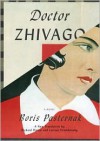
Spoiler: The Hunchback of Notre Dame has one of the greatest endings in literary history. It sneaks up on you, as the very last line, and manages to be both creepy and satisfying as an ending. I have to start by complimenting the language. (This is also addressed to the translator.) Hugo's language is superb, the way he manages to pump feeling into even the dullest topics of description. (Warning: there is a thirty-page depiction of Notre Dame's architecture, but he fills it with gusto.) He also twists humor and irony into the dialogue so effortlessly that almost everything the characters say has dual meaning. (This is something Hugo also did brilliantly in Les Miserables.) And not to turn into a geeky teacher's pet but... another reason this book impresses me so much is how it shows the damaging power of beauty. Really. Hugo gets into the dangers of outward appearance, not just on how appearances can deceive others but how appearances can be dangerous for the wearers themselves. Yes, Quasimodo has scapegoated for his appearance since birth, almost abandoned bescause of it, and after falling deaf, his freak persona is further emphasized; but for La Esmeralda's beauty is what traps her. She is seen as an object of desire, or an obsession, rather than an actual person. A few characters, like Gringoire, underestimate her so much that they are turned off when they finally discover her actual personality. It makes for a dark story. The more the people of Paris misconstrue Quasimodo and La Esmeralda, the more their lives worsen. In a way, this is grittier than Les Miserables. The great scholar is no more than a entitled drunk, the great thinker only thinks of himself, and the honorable soldier is not honorable at all. There are no determined Javerts or honor-seeking Jean Valjeans. There are just damaged people, all living together in the shadow of one cathedral.
 Spoiler: The Hunchback of Notre Dame has one of the greatest endings in literary history. It sneaks up on you, as the very last line, and manages to be both creepy and satisfying as an ending. I have to start by complimenting the language. (This is also addressed to the translator.) Hugo's language is superb, the way he manages to pump feeling into even the dullest topics of description. (Warning: there is a thirty-page depiction of Notre Dame's architecture, but he fills it with gusto.) He also twists humor and irony into the dialogue so effortlessly that almost everything the characters say has dual meaning. (This is something Hugo also did brilliantly in Les Miserables.) And not to turn into a geeky teacher's pet but... another reason this book impresses me so much is how it shows the damaging power of beauty. Really. Hugo gets into the dangers of outward appearance, not just on how appearances can deceive others but how appearances can be dangerous for the wearers themselves. Yes, Quasimodo has scapegoated for his appearance since birth, almost abandoned bescause of it, and after falling deaf, his freak persona is further emphasized; but for La Esmeralda's beauty is what traps her. She is seen as an object of desire, or an obsession, rather than an actual person. A few characters, like Gringoire, underestimate her so much that they are turned off when they finally discover her actual personality. It makes for a dark story. The more the people of Paris misconstrue Quasimodo and La Esmeralda, the more their lives worsen. In a way, this is grittier than Les Miserables. The great scholar is no more than a entitled drunk, the great thinker only thinks of himself, and the honorable soldier is not honorable at all. There are no determined Javerts or honor-seeking Jean Valjeans. There are just damaged people, all living together in the shadow of one cathedral.
Spoiler: The Hunchback of Notre Dame has one of the greatest endings in literary history. It sneaks up on you, as the very last line, and manages to be both creepy and satisfying as an ending. I have to start by complimenting the language. (This is also addressed to the translator.) Hugo's language is superb, the way he manages to pump feeling into even the dullest topics of description. (Warning: there is a thirty-page depiction of Notre Dame's architecture, but he fills it with gusto.) He also twists humor and irony into the dialogue so effortlessly that almost everything the characters say has dual meaning. (This is something Hugo also did brilliantly in Les Miserables.) And not to turn into a geeky teacher's pet but... another reason this book impresses me so much is how it shows the damaging power of beauty. Really. Hugo gets into the dangers of outward appearance, not just on how appearances can deceive others but how appearances can be dangerous for the wearers themselves. Yes, Quasimodo has scapegoated for his appearance since birth, almost abandoned bescause of it, and after falling deaf, his freak persona is further emphasized; but for La Esmeralda's beauty is what traps her. She is seen as an object of desire, or an obsession, rather than an actual person. A few characters, like Gringoire, underestimate her so much that they are turned off when they finally discover her actual personality. It makes for a dark story. The more the people of Paris misconstrue Quasimodo and La Esmeralda, the more their lives worsen. In a way, this is grittier than Les Miserables. The great scholar is no more than a entitled drunk, the great thinker only thinks of himself, and the honorable soldier is not honorable at all. There are no determined Javerts or honor-seeking Jean Valjeans. There are just damaged people, all living together in the shadow of one cathedral.










